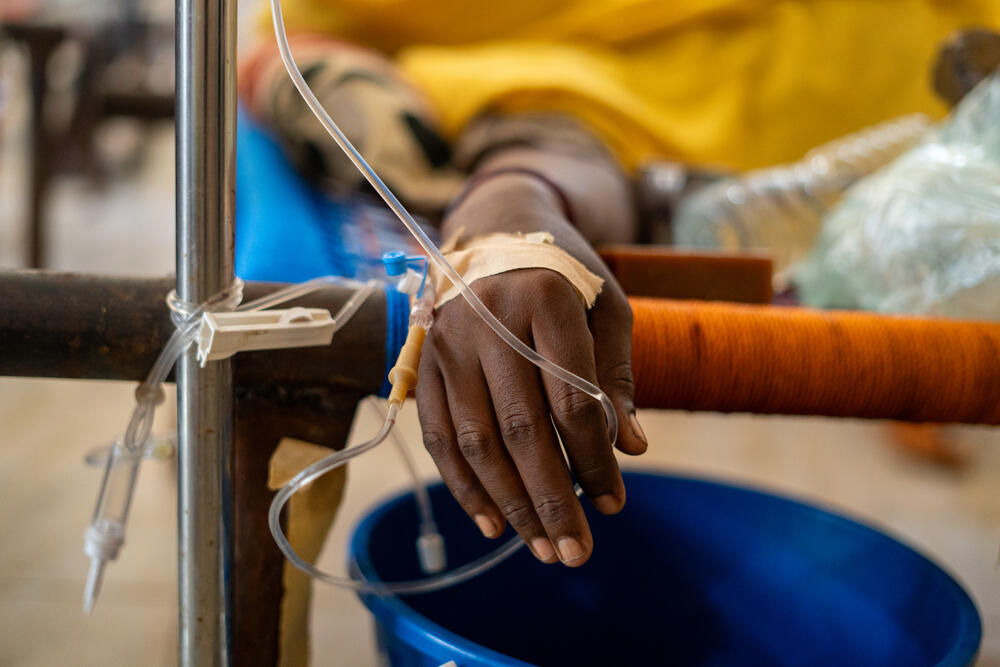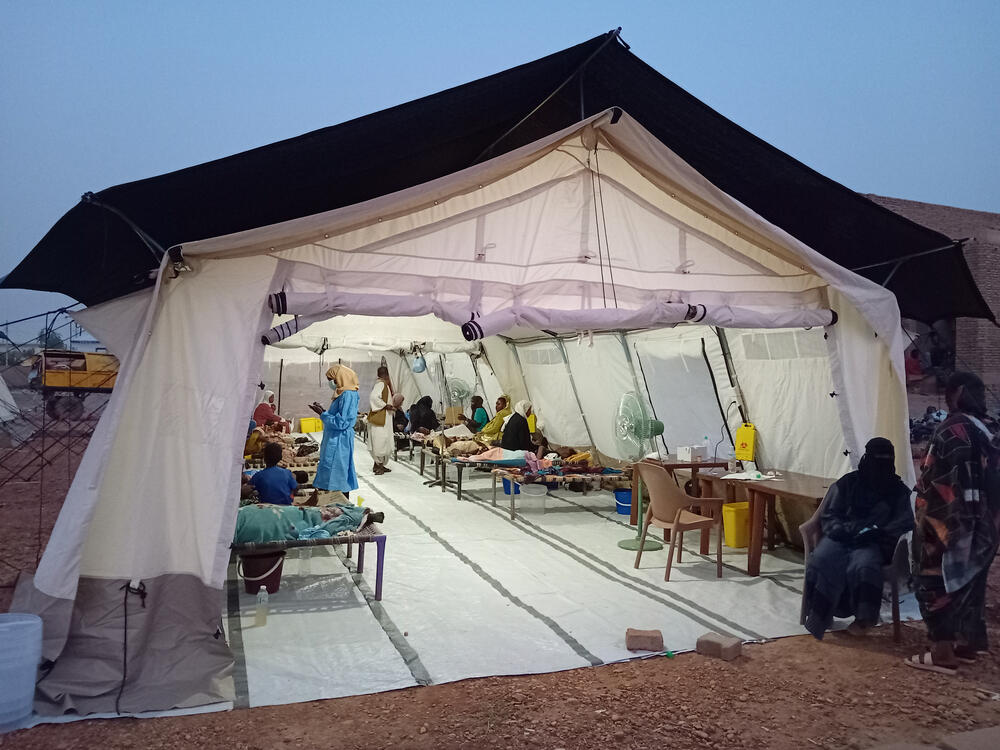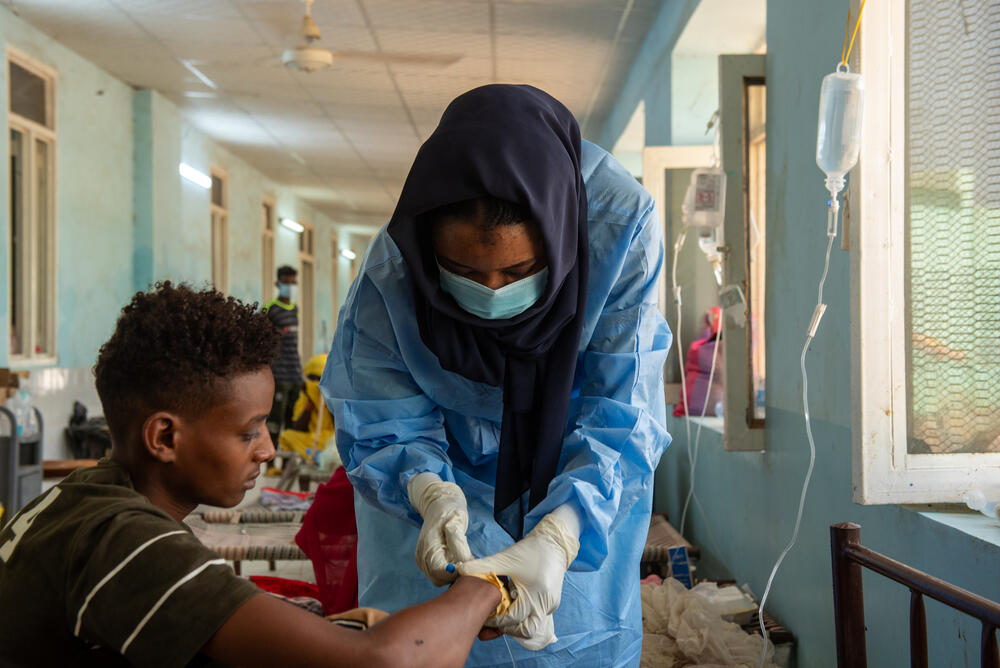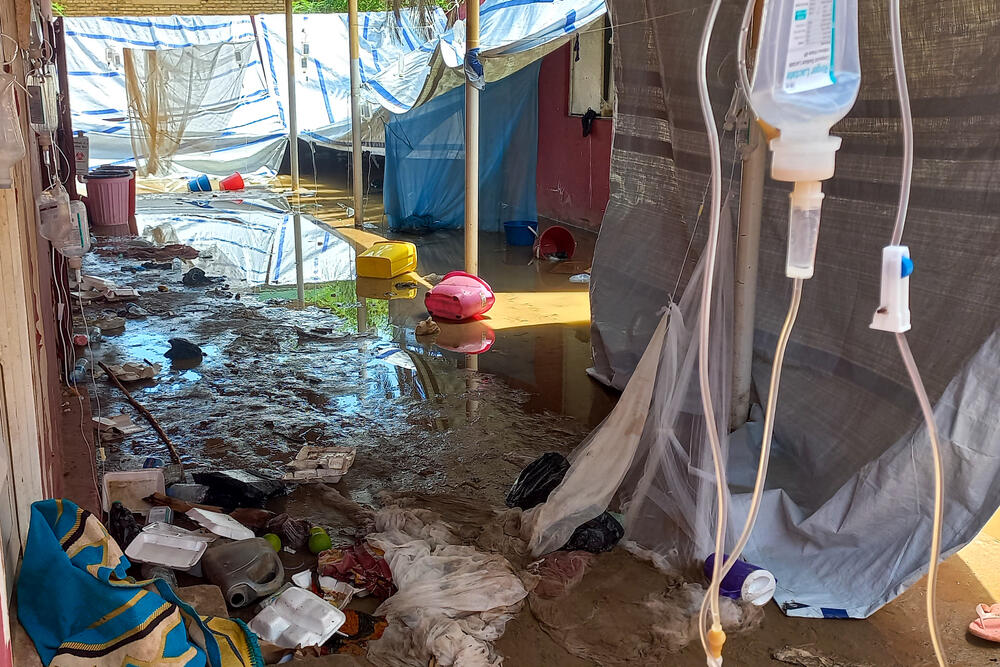Sudan: MSF responds to lethal cholera outbreak
Médecins Sans Frontières / Doctors Without Borders (MSF) emergency teams are responding to a cholera outbreak in Sudan where over 5,000 cases and 191 deaths have been reported.
MSF teams are treating patients and providing water and sanitation services to tackle the disease which is bringing yet more death and misery to people already suffering due to the country’s brutal war.
In August 2024, Sudanese authorities declared a cholera outbreak, which is heavily affecting the states of Kassala, Gedaref, River Nile, Al Jazirah and Khartoum. In the second half of August the weekly cholera cases multiplied by four.
MSF teams are responding by setting up and running cholera treatment centres and units or supporting existing overwhelmed treatment facilities in some of the most affected areas and in hard-to-reach places where cases are rising.
We are also setting up rehydration points, trucking drinking water, constructing handwashing points and latrines, distributing hygiene kits and doing health promotion in the affected communities.
In Darfur, where no cases have yet been registered, teams are helping to improve preparedness.
Between the end of August and 9 September, we treated 2,165 patients in our supported facilities.
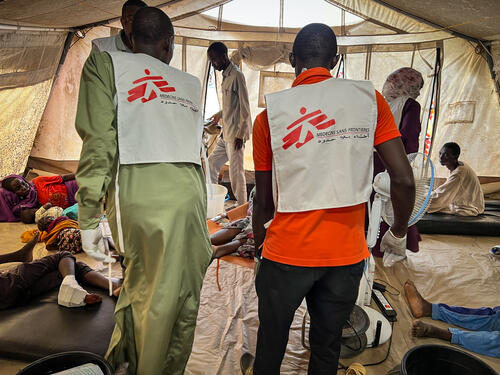
Our work saves lives
What is cholera?
Caused by a water-borne intestinal infection, cholera is transmitted through contaminated food or water, or through contact with faecal matter or vomit from infected people.
Cholera can cause severe diarrhoea and vomiting, and rapidly prove fatal, within hours, if not treated. But cholera is very simple to treat – rehydration is key.
“One man was unconscious [upon arrival to the facility]. Dehydration causes the body to go into shock,” recalls Angela Giacomazzi, an MSF human resource coordinator in Tanedba.
“When the body reaches that point after a few minutes it’s already too late. Doctors were resuscitating him, squeezing litres of fluids in his veins for about five minutes.
“His face and his breathing were really showing so much panic.”
Fortunately, the patient survived.
Ongoing war, floods and now cholera
Cholera cases are not uncommon in Sudan, but this is the second year in a row that the country is faced with outbreaks of the disease.
For the past two years, our teams have been actively engaged in emergency responses to mitigate their impact.
“The menacing mix of heavy flooding and torrential downpours with woeful living conditions and inadequate access to drinking water, particularly in crowded camps for displaced people, have created the perfect storm for the spread of this often deadly disease,” says Esperanza Santos, MSF emergency coordinator for Sudan.
In Kassala, for instance, heavy rains and river floods have destroyed water and sanitation infrastructure and put both internally displaced communities and Eritrean and Ethiopian refugees in even more appalling living conditions.
Cholera adds yet another challenge to the crisis in Sudan and to the decimated health system, already struggling with increasing child malnutrition, high numbers of war-wounded and regular cases of preventable diseases.
Regularly obstructed by both warring parties, the humanitarian response remains far below what is needed.
“We call on the UN and international organisations to fund and scale up activities, particularly water and sanitation (watsan) services”
Unrestricted access is essential
“People are dying from cholera right now; hence we call on the UN and international organisations to fund and scale up activities, particularly water and sanitation (watsan) services, which are crucial to stop the lethal spread,” says Frank Ross Katambula, MSF medical coordinator.
After nearly 17 months of challenges and obstructions around the provision of humanitarian assistance in Sudan, MSF also calls on warring parties to allow unhindered access of medical staff and supplies to all the areas in need across Sudan to enable a quick and coordinated response and prevent avoidable deaths.
“There is a risk of running out of essential supplies such as cholera kits in a moment when scaling up the response is urgently needed.
“We call on the authorities to fast-track and facilitate the delivery of supplies and drugs, as bureaucratic obstacles remain a major challenge,” says Katambula.
MSF and the crisis in Sudan
On Saturday 15 April 2023, intense fighting broke out across Sudan with a wave of gunfire, shelling and airstrikes.
The violence between the Sudanese Armed Forces (SAF) and the Rapid Support Forces (RSF) has trapped millions of people in the middle of an unexpected conflict. Many have been forced to flee their homes while access to essential services such as healthcare has become increasingly difficult.
Médecins Sans Frontières / Doctors Without Borders (MSF) teams already working in Sudan have been responding to the crisis since its first moments.
